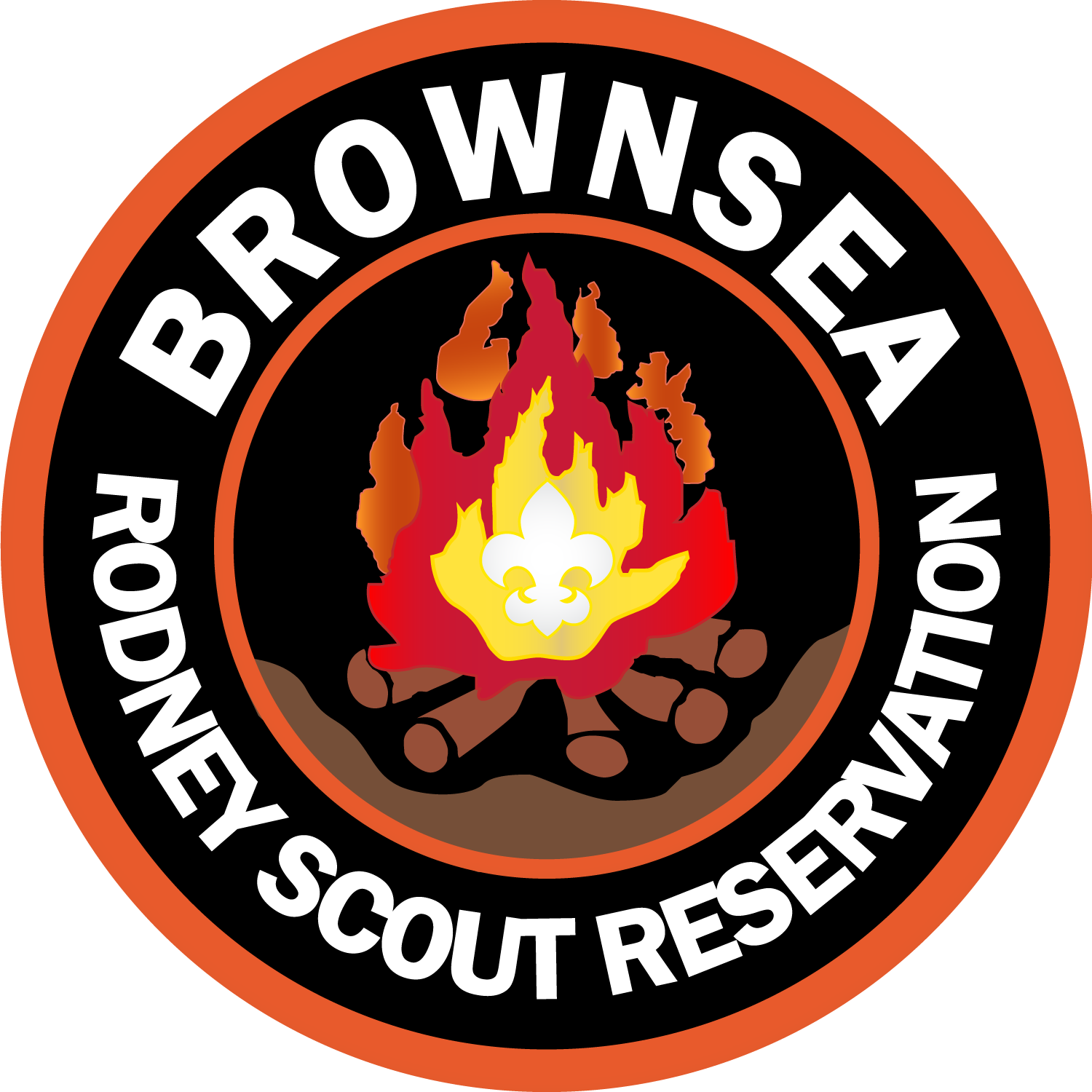
BROWNSEA
The First-Year Camper Program
Featured in Scouting Magazine, this program is aimed at the 11-year old Scout or newly crossed over Webelos Scout. It is designed to give a new Scout the basic camping skills he needs and will include many requirements for rank advancement for Tenderfoot, Second Class and First Class. In addition, the first year camper will visit and participate in most program areas in camp. There are merit badge opportunities in Swimming MB and Nature MB as well as Totin’ Chip, Firem’n Chit and Leave No Trace.
More information about this year's Brownsea Program Can be found at the following link:
2024 Brownsea Letter and Requirements
(updated 7/11/2023)
Island Experiment Leads to Quality Programs - The importance of First Year Camper programs
-by Matthew Gutherman, Rodney Alumni
In 1907, Robert Baden-Powell held an experiment on a small island in Poole Harbor on the South English coast. Twenty-one boys were on the island as part of a weeklong camp, testing the ideals and skills that would be written about a year later in Baden-Powell’s first book, Scouting for Boys. From its humble beginnings nestled between salt marshes and woodlands, the Scouting movement grew rapidly.
Brownsea Island, where the first ever Scout camp was held, is the namesake of First Year Camper (FYC) programs across the United States. It is the name of the FYC program at Rodney Scout Reservation in Del-Mar-Va Council. The Brownsea program is aimed at 11-year old Scouts, or those that have recently crossed over from Webelos. It is designed to give a new Scout the basic camping skill he or she needs and will include many requirements for rank advancement through First Class. Additionally, opportunities are built into the program for merit badge completion. Not only are the opportunities for advancement available, Scouts will have a complete camp experience traveling around camp to participate in most of what camp has to offer.
“39% of drops in membership happen during a Scout’s first year in the Scouting program”.
A national BSA retention survey found that 51% of Scouts leaving the program happened at the Scout or Tenderfoot ranks; 39% of drops in membership happen during a Scout’s first year in the Scouting program. Reasons cited for leaving the program include boring programs, not fun and not enough activities.
The Rodney Brownsea program is full of age appropriate activities to give new Scouts what they want and need. Staffed by highly trained staff, the Brownsea program utilizes effective teaching strategies to give Scouts the best opportunity to quickly, and most importantly enjoyably learn the structure of a Scouts BSA troop and advance in rank.
“Advancement in addition to fun activities are directly linked to Scout retention. The Brownsea Program provides a unit with both”.
At Rodney Scout Reservation, Brownsea Scouts put into practice the patrol method as they work to complete requirements for the first three ranks. The importance of the Brownsea program toward unit health cannot be overstated. According to the National Retention Study, 51% of Scouts that leave the program do so at the Scout and Tenderfoot ranks. Advancement in addition to fun activities are directly linked to Scout retention. The Brownsea Program provides a unit with both. Not only are Scouts working towards advancement in a fun way, they are also experiencing all that camp has to offer. These Scouts will travel around camp as a patrol, guided by their staff member Patrol Leader, to see what Scouting has to offer. From rock climbing and hiking to archery and rifle shooting each Brownsea Scout gets a truly well-rounded Scouting experience at camp.
Just like the first youth camping on Browsea Island in England started the ripple that would evolve into the wave that has circled the Scouting movement around the world, the Brownsea Program at Rodney Scout Reservation is the stone that starts the wave in each Scout and troop that participates.